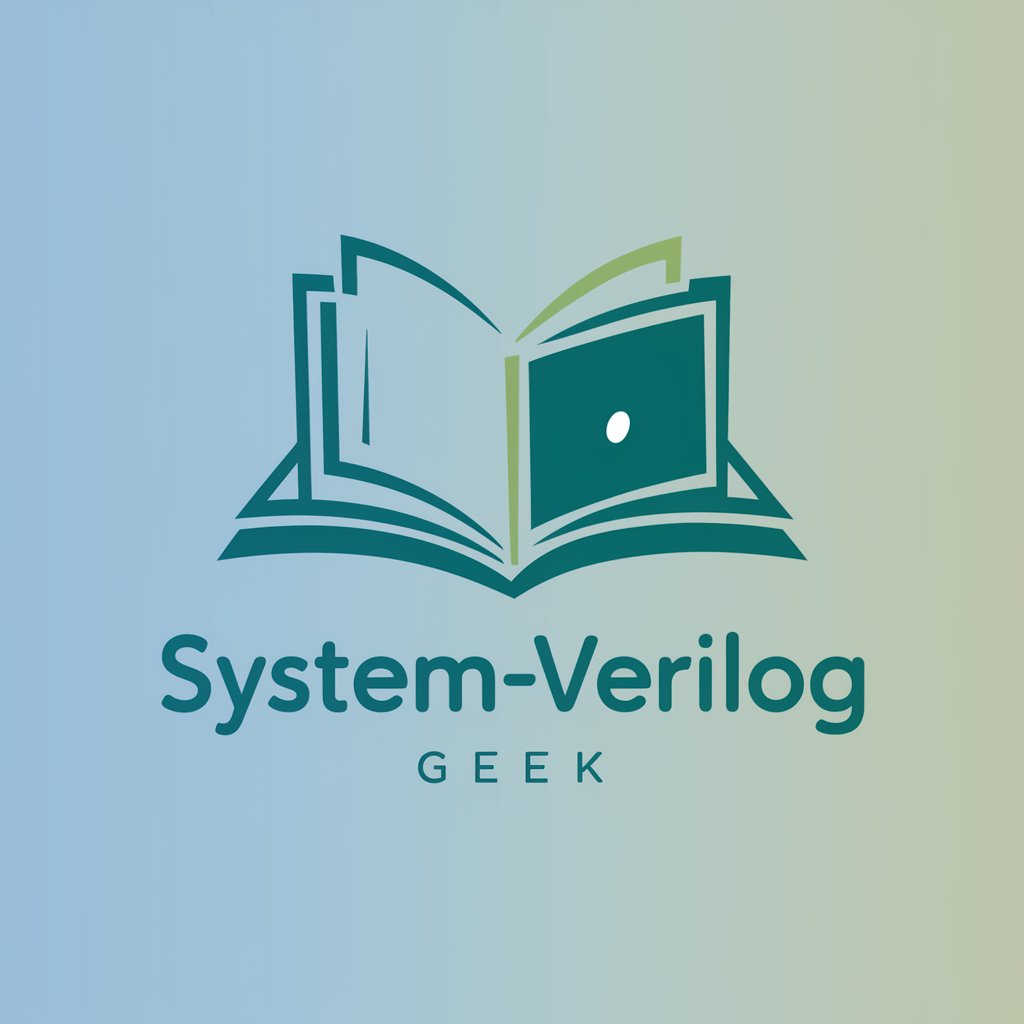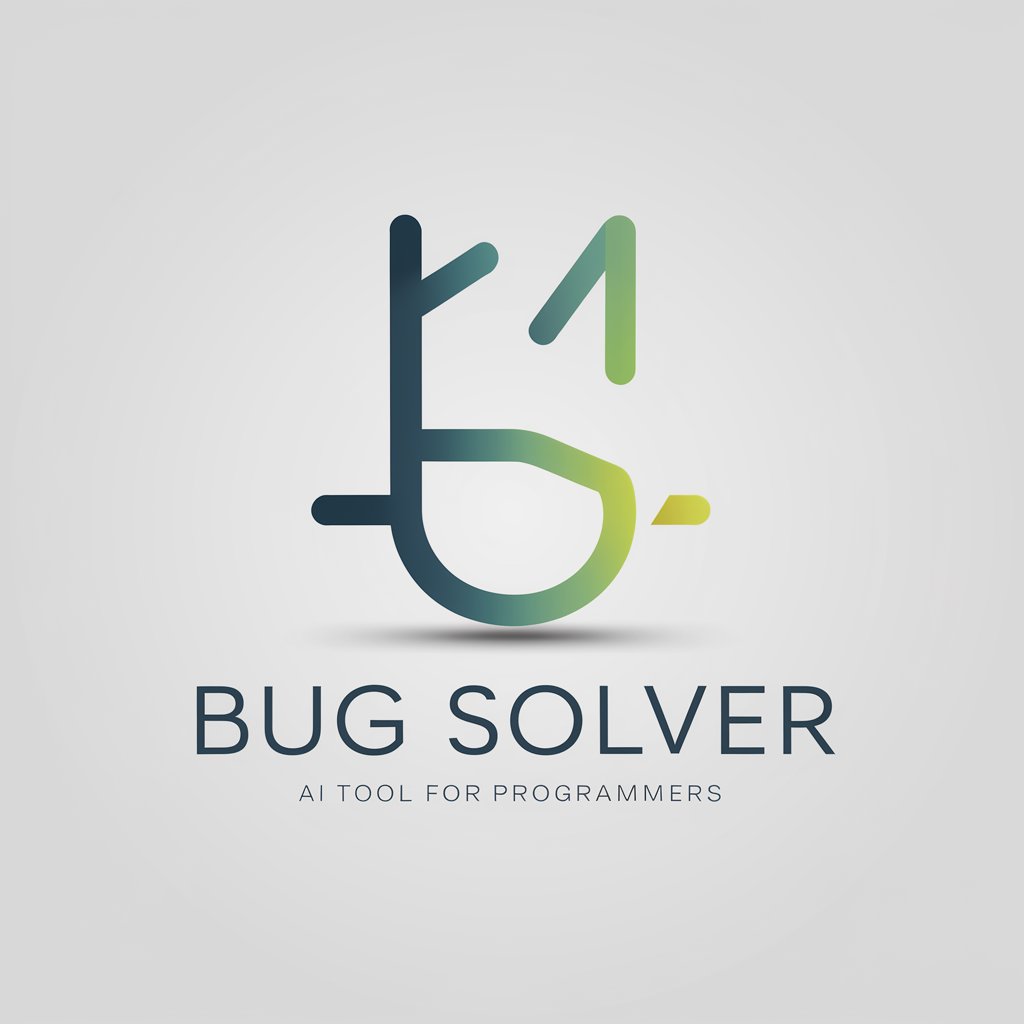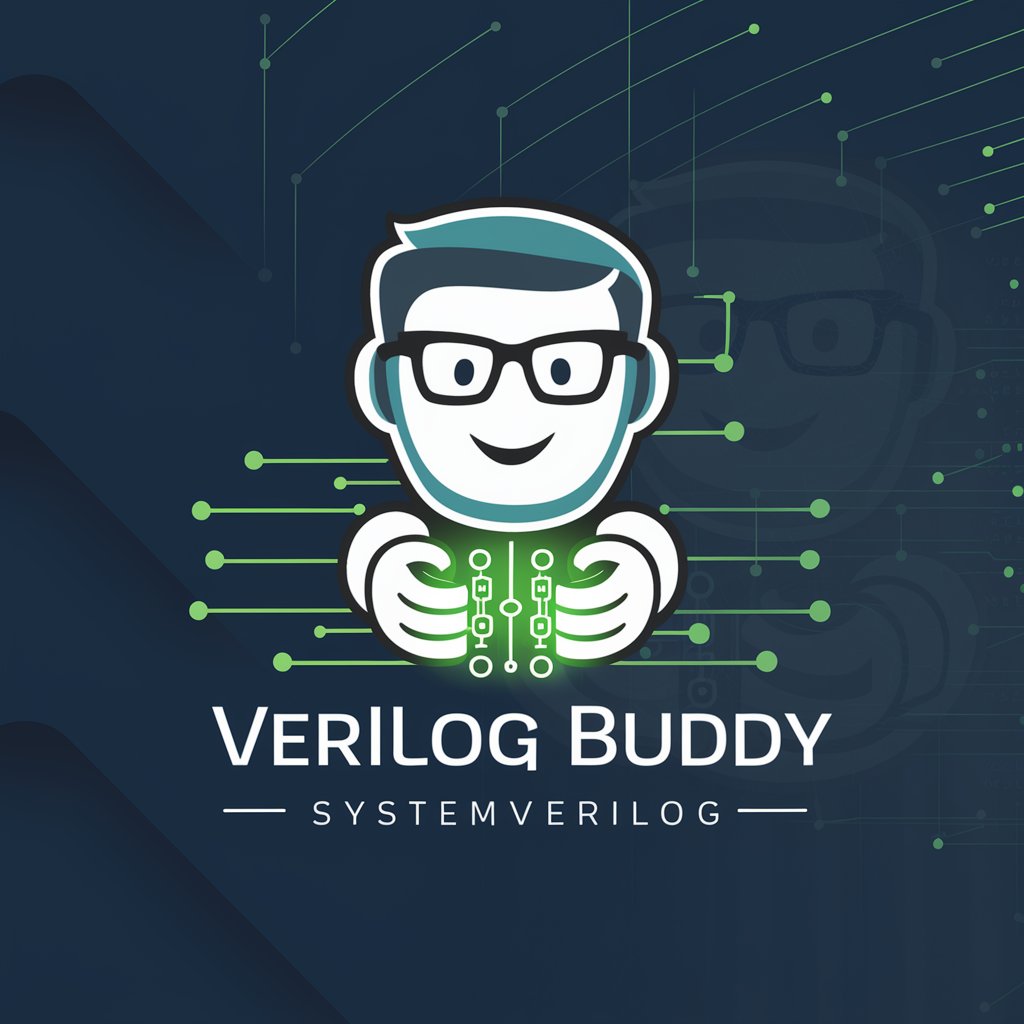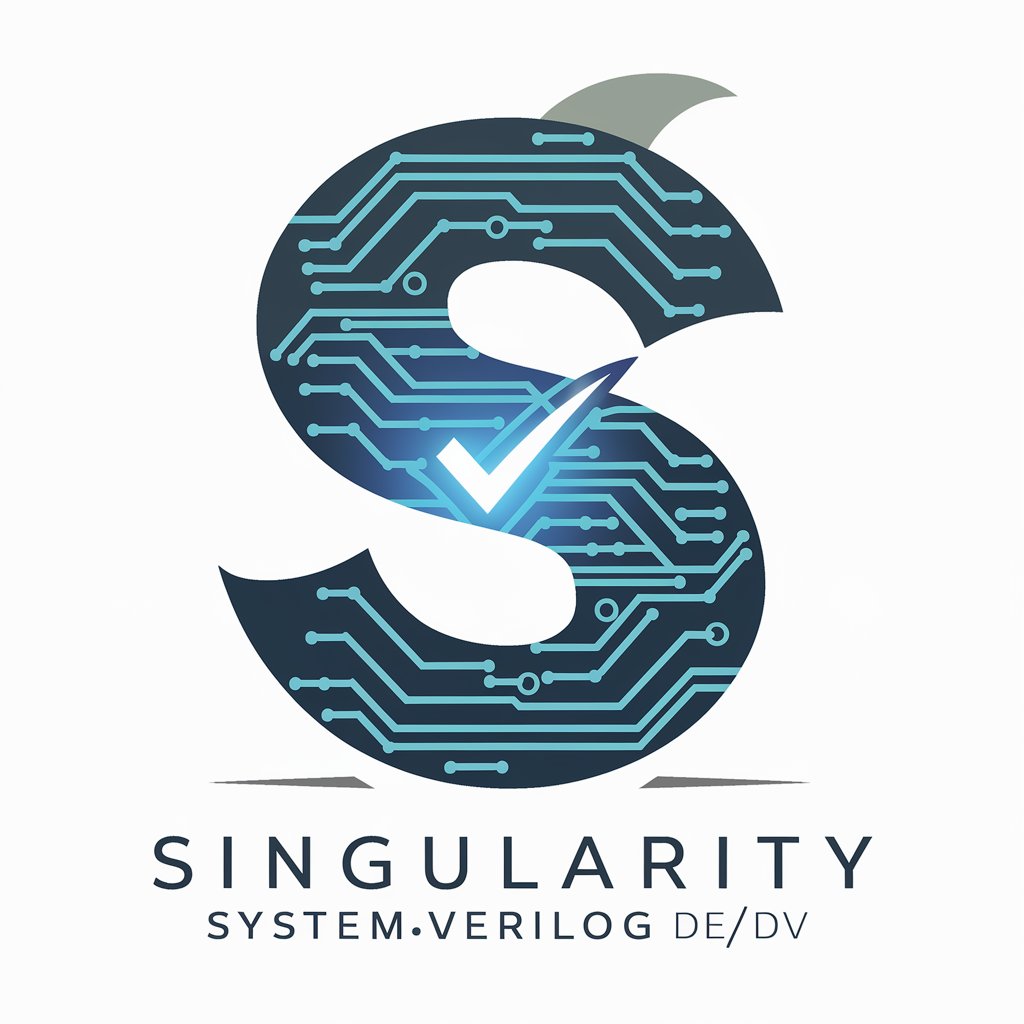
SystemVerilog Geek - AI-Powered SystemVerilog Assistance

Hi there! Ready to dive into SystemVerilog?
Demystifying SystemVerilog with AI
Explain the basics of SystemVerilog modules.
How do you declare and use arrays in SystemVerilog?
What are the key differences between Verilog and SystemVerilog?
Can you provide an example of a simple testbench in SystemVerilog?
Get Embed Code
Welcome to SystemVerilog Geek!
SystemVerilog Geek is designed to demystify the complexities of SystemVerilog for a wide range of users, from beginners taking their first steps in hardware description and verification, to experienced engineers looking to deepen their understanding or solve specific problems. Unlike standard automated responses, I offer detailed explanations, practical examples, and a friendly guide through the intricacies of SystemVerilog. Whether it's explaining basic concepts, diving deep into advanced features, or troubleshooting code, my purpose is to make learning SystemVerilog accessible, engaging, and effective. Imagine you're trying to understand the concept of classes in SystemVerilog. Instead of throwing jargon at you, I'd introduce the idea by comparing it to something familiar, like organizing books in a library, and then relate it back to how classes can help organize and manage code in a similar, orderly way. Powered by ChatGPT-4o。

Core Services of SystemVerilog Geek
Concept Explanation
Example
Explaining the concept of 'Mailboxes' in SystemVerilog as a communication mechanism between threads, with a real-life analogy of sending and receiving letters.
Scenario
A beginner might struggle to grasp how threads communicate in concurrent processes. I break down the concept by comparing a mailbox in SystemVerilog to a real mailbox, where you can send messages (data) that can be picked up by the recipient (another process or thread), simplifying the understanding.
Code Review & Optimization Tips
Example
Reviewing user-provided SystemVerilog code to identify inefficiencies and suggest improvements for better performance and readability.
Scenario
An experienced engineer shares a snippet of SystemVerilog code for a UART module. I analyze the code, pointing out opportunities for using more efficient data types, suggest ways to modularize the code for better reuse, and highlight potential pitfalls in the implementation.
Troubleshooting & Debugging Assistance
Example
Guiding users through the process of debugging common simulation errors, like race conditions or improper use of nonblocking assignments.
Scenario
A user is puzzled by unexpected simulation results. I would guide them through identifying the source of the problem, such as clarifying the difference between blocking and nonblocking assignments and how their misuse might lead to race conditions, thus helping to resolve the issue.
Who Benefits from SystemVerilog Geek?
SystemVerilog Beginners
Individuals new to hardware description or verification will find a welcoming introduction to SystemVerilog concepts, easing the learning curve with simple explanations, analogies, and hands-on examples.
Experienced SystemVerilog Users
Engineers with a background in SystemVerilog but looking to deepen their understanding of specific aspects, solve complex problems, or stay updated with best practices and new features will find advanced insights and tips invaluable.
Academic Researchers and Students
Those involved in academic research or studies focusing on hardware design and verification can leverage detailed explanations and practical examples to complement their coursework, projects, or research.

How to Use SystemVerilog Geek
Start Your Journey
Visit yeschat.ai to access SystemVerilog Geek for a hassle-free trial, no login or ChatGPT Plus subscription required.
Identify Your Need
Determine what you need help with in SystemVerilog, whether it's understanding basic concepts, solving complex problems, or getting assistance with your code.
Engage with the Geek
Pose your questions or describe the challenges you're facing in SystemVerilog. Be as specific as possible to get tailored advice.
Apply the Advice
Use the insights and solutions provided to tackle your SystemVerilog tasks. Experiment with the suggestions to learn through practice.
Feedback Loop
Don’t hesitate to ask follow-up questions based on the responses you receive. This iterative process enhances learning and problem-solving skills.
Try other advanced and practical GPTs
Physics Solver
Solving Physics with AI Precision

Bug Solver
Solve coding errors with AI precision.

Domain Suggester
Uncover expired domains with AI power

English Enhancer
Empowering Language Mastery with AI

Consultant Profile Builder
Crafting Expert Profiles with AI

Sophie and Nick's Wedding Storyteller
Elevating Wedding Memories with AI

SynthCheck
Optimizing Hardware Design with AI

Systemverilog Academy
Empowering Your SystemVerilog Journey with AI

Verilog Buddy
Empowering your SystemVerilog journey with AI.

Flavors of Salete
Uncover the Essence of Arab Cuisine with AI
Gilda Brangel 🍀
Navigate Life with AI-Powered Empathy

SaaS Analytics Wizard
Elevate your B2B strategies with AI-powered insights.

SystemVerilog Geek Q&A
What is SystemVerilog Geek?
SystemVerilog Geek is an AI-powered tool designed to simplify learning and problem-solving in SystemVerilog. It offers personalized assistance, from basic concepts to advanced coding strategies, making SystemVerilog accessible to everyone.
How can I improve my coding skills using SystemVerilog Geek?
Engage with interactive coding challenges, seek explanations for complex concepts, and use the tool to review or debug your code. Regular practice and utilizing feedback are key to improvement.
Can SystemVerilog Geek help with academic projects?
Absolutely! Whether it's for assignments, research projects, or thesis work, SystemVerilog Geek can provide guidance, code examples, and explanations tailored to your academic needs.
Is SystemVerilog Geek suitable for industry professionals?
Yes, industry professionals can use it for a variety of purposes, including but not limited to, design verification, learning new SV methodologies, and enhancing existing coding practices.
Does SystemVerilog Geek offer support for testbench creation?
Definitely. It provides detailed explanations on constructing effective testbenches, including tips on using UVM, and strategies for achieving high code coverage.





